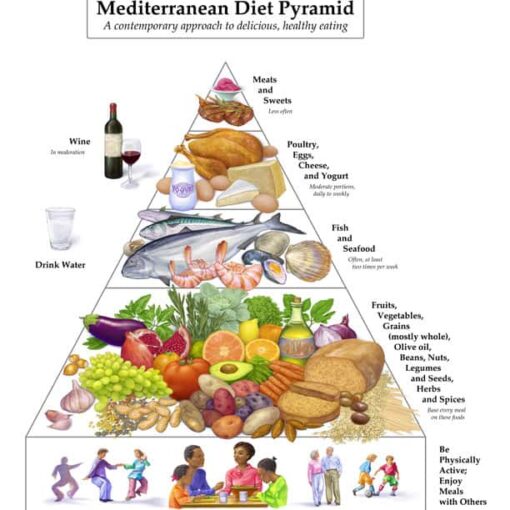Optional: Quiet Time For Pranayama, Meditation Or Prayer!
Ayurveda recognizes the power of a number of subtle therapies. In many cases, attributing excess weight to improper diet and inadequate exercise alone is a gross oversimplification, ignoring important emotional, psychological, and even physical patterns underlying the imbalance.
Emotional unrest is often a significant factor in poor eating habits, lethargy, depression, and anxious feelings. Undigested, unprocessed emotions quickly interfere with our physical health and our mental ability to authentically care for ourselves each day. A mindfulness practice can begin to neutralize the powerful hold that these patterns often have on our behavior. We also know that long-term stress can lead to weight gain by overtaxing the endocrine system, and ultimately, by compromising our metabolism (think adrenals, thyroid, and pancreas).
Spiritual practice can help reset the nervous and endocrine systems, supporting improved metabolic function, and beginning to unwind the cycle of chronic stress that is frequently behind excess weight. In short, if stress, anxiousness, and feeling overextended have become an integral part of your life, consider making a sixth commitment to some sort of daily mindfulness practice.
This does not have to be a lengthy endeavor, even ten to fifteen minutes can have a profound impact on your state of mind. If you don’t have an existing practice, consider one of the following:
Pranayama. Working with the breath through the practice of pranayama is a powerful way to access and reset longstanding patterns in the energetic body. There are several pranayamas suitable in Ayurveda for weight loss, such as Kapalabhati (Skull Shining Breath) and Bhastrika (Bellows Breath). Those that are soothing, slow, grounding, and calming, like Nadi Shodhana (Alternate Nostril Breathing) will be best for clearing stress, anxious feelings, and other unresolved emotions.
Meditation. Meditation can help us to re-pattern the brain on a very profound level, supporting our health in a myriad of ways. If you do not have an existing practice, Empty Bowl Meditation is a simple yet powerful technique, suitable for anyone. Ayurveda recognizes the power of a number of subtle therapies. In many cases, attributing excess weight to improper diet and inadequate exercise alone is a gross oversimplification, ignoring important emotional, psychological, and even physical patterns underlying the imbalance.
Emotional unrest is often a significant factor in poor eating habits, lethargy, depression, and anxious feelings. Undigested, unprocessed emotions quickly interfere with our physical health and our mental ability to authentically care for ourselves each day. A mindfulness practice can begin to neutralize the powerful hold that these patterns often have on our behavior.
We also know that long-term stress can lead to weight gain by overtaxing the endocrine system, and ultimately, by compromising our metabolism (think adrenals, thyroid, and pancreas). Spiritual practice can help reset the nervous and endocrine systems, supporting improved metabolic function, and beginning to unwind the cycle of chronic stress that is frequently behind excess weight.
In short, if stress, anxiousness, and feeling overextended have become an integral part of your life, consider making a sixth commitment to some sort of daily mindfulness practice. This does not have to be a lengthy endeavor, even 10 to 15 minutes can have a profound impact on your state of mind.
Create An Exercise Schedule.
The primary objective behind creating a schedule here is to make sure that your three days of exercise happen, but creating predictability with your new habits will have its own benefits.
It may require some experimentation to determine what works best for you, but once you find a rhythm, stick with it and be persistent. Being consistently active will help you immensely.
Eat Breakfast, Lunch, And Dinner At About The Same Time Each Day.
Eating your meals at consistent times from one day to the next ensures that there is adequate space between meals and reinforces the predictability of a routine, both for your metabolism and for your nervous system.
Classic Ayurvedic meal times are roughly 8 a.m. for breakfast, 12 p.m. for lunch, and 6 p.m. for dinner. This exact timing may not work with your schedule, and it’s important that your meal times are compatible with your daily routine.
That said, your body will benefit from eating lunch, your biggest meal, between 11 a.m. and 2 p.m., when the digestive fire is strongest. Similarly, eating a light, early dinner will be the most supportive of your weight-loss efforts.
Set Aside A Time To Practice Your Fifteen Minutes Of Morning Yoga!
It’s only fifteen minutes, but it’s incredibly important to carve out a specific time each day for your yoga practice, otherwise it may fall by the wayside. It is best to practice in the early morning before breakfast, but if that simply won’t work for you, find another time of day when you can practice on an empty stomach.




